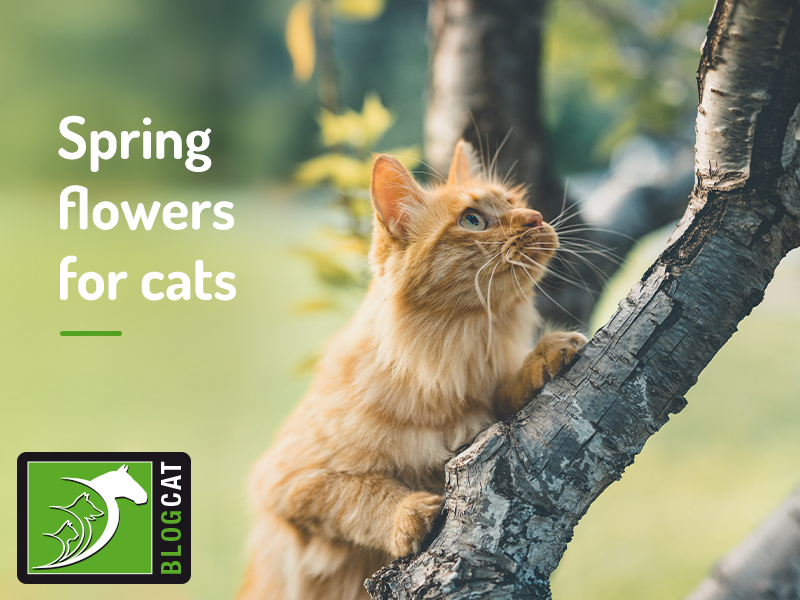
Spring flowers for cats

Spring brings us some of the best experiences of the year! The days start getting longer and warmer, and the dreary weather of winter slowly makes way for springtime bloom.
Even though there are still plenty of movement restrictions, the spring green and extra light make everyone a little more cheerful, even though we can't go on outdoor adventures quite yet. Despite that, our gardens and homes are alive once more with all sorts of plants and flowers, letting us safely enjoy all the good things about this season from home.
However, plenty of plants can be dangerous to our furry friends, especially their bulbs. Some of the most common examples are:
- Lilies (Lilium and Hemerocallis)
- Foxglove
- Ivy
- Yew
- Rhododendron and azalea
- Oleander
- Daffodil
- Geranium
- Hyacinth
- Tulips
If you're considering a revamp on your garden or just looking to add some colour to your rooms, don't forget to check for plants that are pet-appropriate!
Lilium and Hemerocallis
We would like to take some time to talk about cats and lilies, which are often bought into our homes as gifts or decorations, as these can pose a deadly danger for our feline companions.
Lilies (Lilium) and daylilies (Hemerocallis) are the two groups that are the most toxic to cats. Many other species have 'lily' in their common name but might not be considered lilies.
A small quantity of any part of the plant is enough to cause severe harm, including the pollen. Even though your cats may not be interested in nibbling flowers or unpotting bulbs, they may still ingest pollen by grooming their coats.
Signs of lily intoxication
- Drooling;
- Nausea;
- Vomiting;
- Diarrhoea;
- Disorientation;
- Tremors;
- Seizures;
- Kidney failure.
Irreversible kidney damage is easy to happen, and the best way to avoid it is to not have any lilies in your home or garden.
If you suspect your cat has come in contact with a lily, do not hesitate to contact your vet! The sooner the treatment is started, the better the chances of recovering without losing kidney function.
Would you like to know more about cats? Check our Feline Courses:
Feline courses
Published: 07 Apr 2021
Read the previous article: Preventing pet theft

